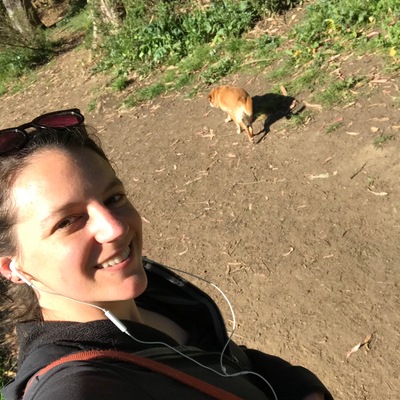
Have you ever heard the saying “it takes a village to raise a child?” Well, where I live, most people do not know the name of their next door neighbor.
This isolation can cause loneliness, but it is more than that. Having a community is helping people do jobs they can’t, it’s lending tools, it’s teaching someone something their parents never taught them, and more.
Luckily, there is a solution that is becoming common in both co-housing and eco-villages around the world. They utilize common areas or community centers, as well as outdoor spaces(such as courtyards or rooftop gardens). While you still have your private home with your own kitchen, you also have these spaces which are open to everyone.
Here are some ideas you might see in these common spaces:
- Indoor play area. In some, the retired senior citizens who like to keep busy volunteer to watch children in these areas while parents are at work.
- Dining room big enough to fit every person who lives there and guests.
- Community Kitchen. People take turns cooking, or they have occasional dinners together.
- Private office spaces (for work-from-home workers who still want to be around people).
- Tiny libraries.
- Outdoor play area.
- Outdoor sitting spaces.
- Community gardens and/or a greenhouse.
More Ideas:
- Window awnings which utilize passive solar, so the sun is blocked in the summer but not the winter
- A central courtyard for passive cooling. Examples: Skywells (China), Tsubo-niwa (Japan). Thevenin @beehaw.org adds that a retractable cover of some kind might be important to protect from wind pressure.
- Better insulation for better temperature control, and sound proofing.
- Bird-safe windows
- Rainwater collection for watering plants (or, the more expensive option: for piping into toilets)
- White roofs for cooling in hot climates, dark roofs for warming in cold climates
Recommended Video:
What else would improve apartment buildings?
This is so weird. I’ve lived in high density housing nearly my entire adult life. I knew all my neighbors names… Even Alex, you fucking dick.
Seriously, though, this is silly. Plenty of us know our neighbors. 99% of mine are great. Not you, Alex.
Depends on the people I guess. I have zero contact with my neighbors and don’t know their names. I fucking hate that I can hear when my upstairs neighbor lets something fall on the floor, or vaccuums their floor though, but nothing I can do about that. So yeah, experience can vary
in most places i’ve lived, my physical neighbours did not want to be known, and did not want to know anyone else, either. granted, most of them really only used their apartments/houses as a very expensive sleeping place and nothing more. they didn’t really live in their houses; it was just where they usually slept between working.
even when the neighbours were friendly, there were no common spaces and the housing too small to accommodate get-togethers, and no third places to go to. and the friendly neighbours were always apart of the conspicuously racist pensioner cabal.
Maybe it’s a “where you live” type thing. 🤔 I know my neighbours(luckily, I don’t have an Alex haha), but I live in a small town where you’re rude if you don’t say hello to strangers you’re walking by.
HOWEVER, most my friends and family who live in the city(mostly in lower-income apartments) don’t. The only city person I can think of who knows her neighbours is my aunt, who has lived in her house for longer than I’ve been alive.
So it could be a mix of culture, housing type, how long you’ve been there, and so on. Maybe Canadian cold winters plays a part, too. 😂
- Washing area for clothes, with washing machines and clothes lines.
- Tool liberary for common tools like hammers, drills and so forth
- shared transport like car and a large cargo bike
Another big one, which is often forgotten is to add space for shops or similar commercial use cases on the ground floor. Mixed use minimizes the length people have to travel. Also some of them can be in the back area. There are quite a few commercial spaces, which do not really need street access. Things like doctors offices, lawyers, but also many craftspeople come to mine(as long as it does not smell, is toxic or loud).
Those are all absolutely wonderful ideas!! Would you mind if I edited my post and added them to the list with credit to you?
I cannot find the reference now, but I remember reading about favelas and how they are designed with courtyards so that there can be a shared responsibility of childcare.
The other thing that jumps to mind is dorms for students in the US which have a very similar coliving feel. I believe the Dutch and some Nordic countries were also collocating the elderly into similar areas to create a mixed generation encampment.
Thanks for the info! I will try to research those
deleted by creator
All great ideas, very resonant with Soft City, by David Sim, and not only the visual style which I could stare at for hours!
Overall more functional variety, more different people and purposes and activities in close proximity and at human-scale, and better integration of buildings and lives into whole tapestry rather than bits and tatters separated by seas of cars and car infrastructure…
Thanks for sharing! I will check if my library has it!
@Blair We’ve looked into co-housing but there are few places in our area, and most are too pricey for us. I would love to see this become more common, because it increases community and allows for some independence as well.
That’s good they are becoming more common! One opened in the city near here (also too expensive for me) and it sold out in hours, so people absolutely seem interested.
Hopefully as they become more common, they will get more affordable too.







